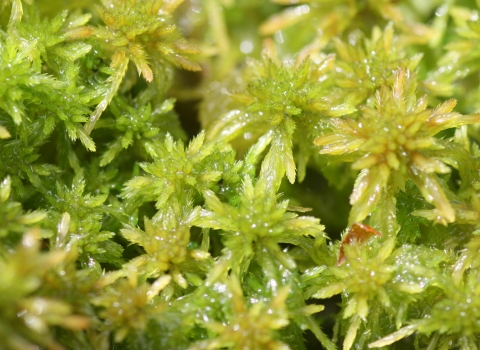Drawing on the latest research, the report shows that if degraded habitats were to be expertly restored this would allow natural landscapes to store carbon and absorb a third of UK emissions.
The Wildlife Trusts (TWT) are calling on government, industry and local authorities to step-up investment in nature’s recovery and climate change mitigation by:
· Restoring a wide range of land habitats such as grasslands, peatlands and wetlands to store carbon. Government have missed targets to plant trees and help peatlands recover and now must identify, map and protect a wide array of ecosystems and restore them locally as part of a national Nature Recovery Network.
· Restoring nature at sea by introducing effective management for our network of Marine Protected Areas and by designating a suite of Highly Protected Marine Areas. These measures would bring our oceans back to health and enable them to function properly and absorb more human-made CO2 emissions.
TWT know from experience that restoration can help soak up UK emissions while contributing many additional benefits. For example, better natural habitats reduce the risk of flooding, help prevent coastal erosion, improve people’s health and ensure thriving ecosystems which provide the pollinators, soils, food and water which sustain us. Nature is, itself, at risk from climate change – yet its potential to store carbon means it can help address climate catastrophe.
Craig Bennett, CEO of The Wildlife Trusts says:
“We cannot tackle the climate crisis without similar ambition to meet the nature crisis head on – the two are inseparable. The climate crisis is driving nature’s decline, while the loss of wildlife and habitats leaves us ill-equipped to reduce our emissions and adapt to change. It makes no sense to continue destroying natural habitats when they could help us – nature’s fantastic ability to trap carbon safely and provide other important benefits is proven.
“But nature in the UK is in a sorry state and important habitats are damaged and declining. Efforts to cut emissions must be matched with determined action to fix broken ecosystems so they can help stabilise climate. Restoring nature in the UK needs to be given top priority – we’re calling on government, industry and local authorities to step-up investment urgently.”
TWT are leading ground-breaking projects to restore and connect habitats across the UK, creating a network of re-wetted peatlands, wet agriculture schemes and new saltmarsh. We also advise thousands of farmers and landowners on how best to care for their land so that it sustains wildlife. The report draws on a few of many Wildlife Trust examples of restored fenland at the Great Fen, huge-scale blanket bog restoration in Yorkshire, coastal realignment in Essex and beaver reintroduction in Scotland.
Hear Craig Bennett and Lorna Parker, Great Fen restoration manager on BBC R4 Today programme, Wed 24 June - starts 2:49:47 mins, and watch Craig Bennett at the Great Fen below.


